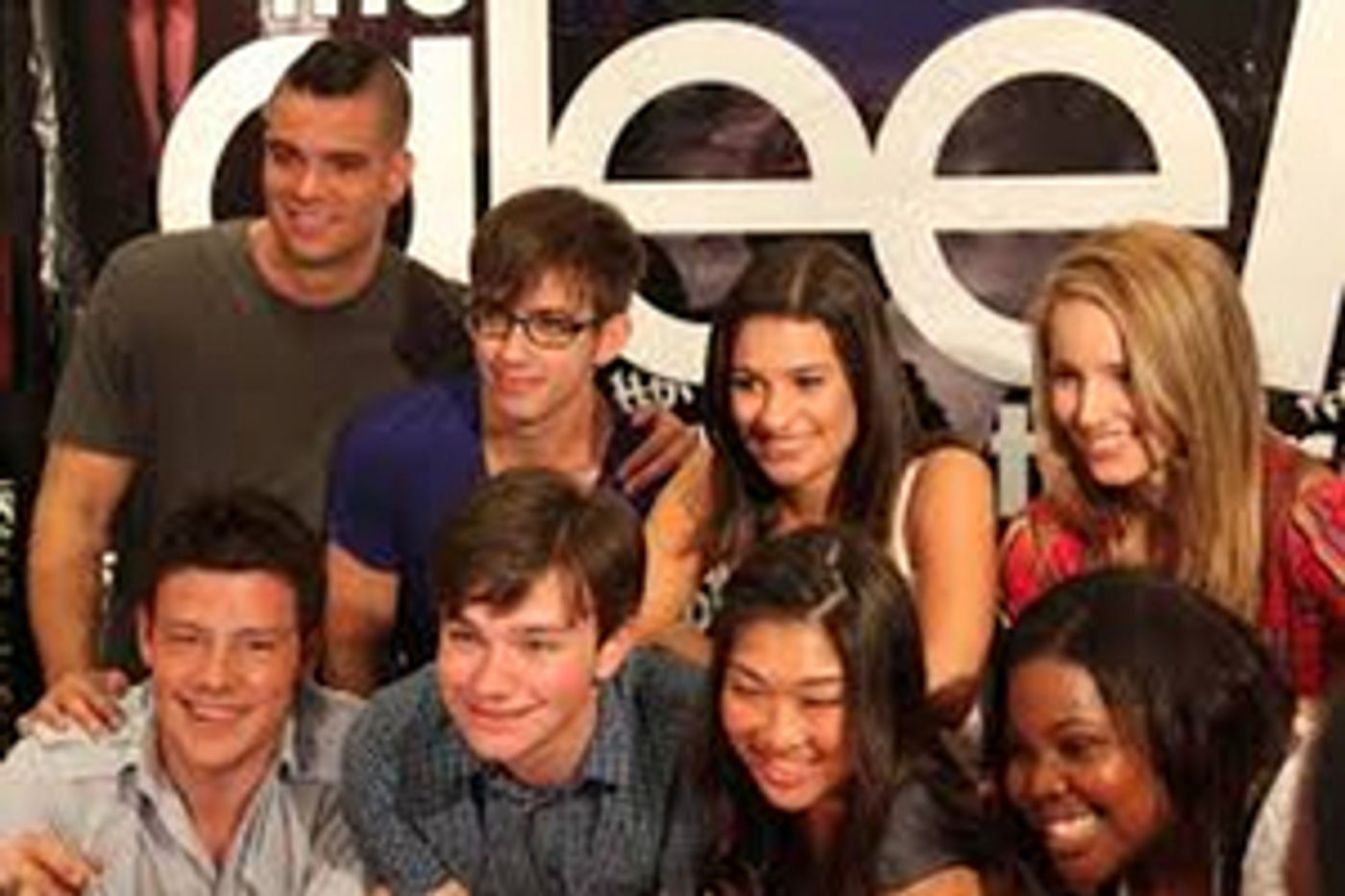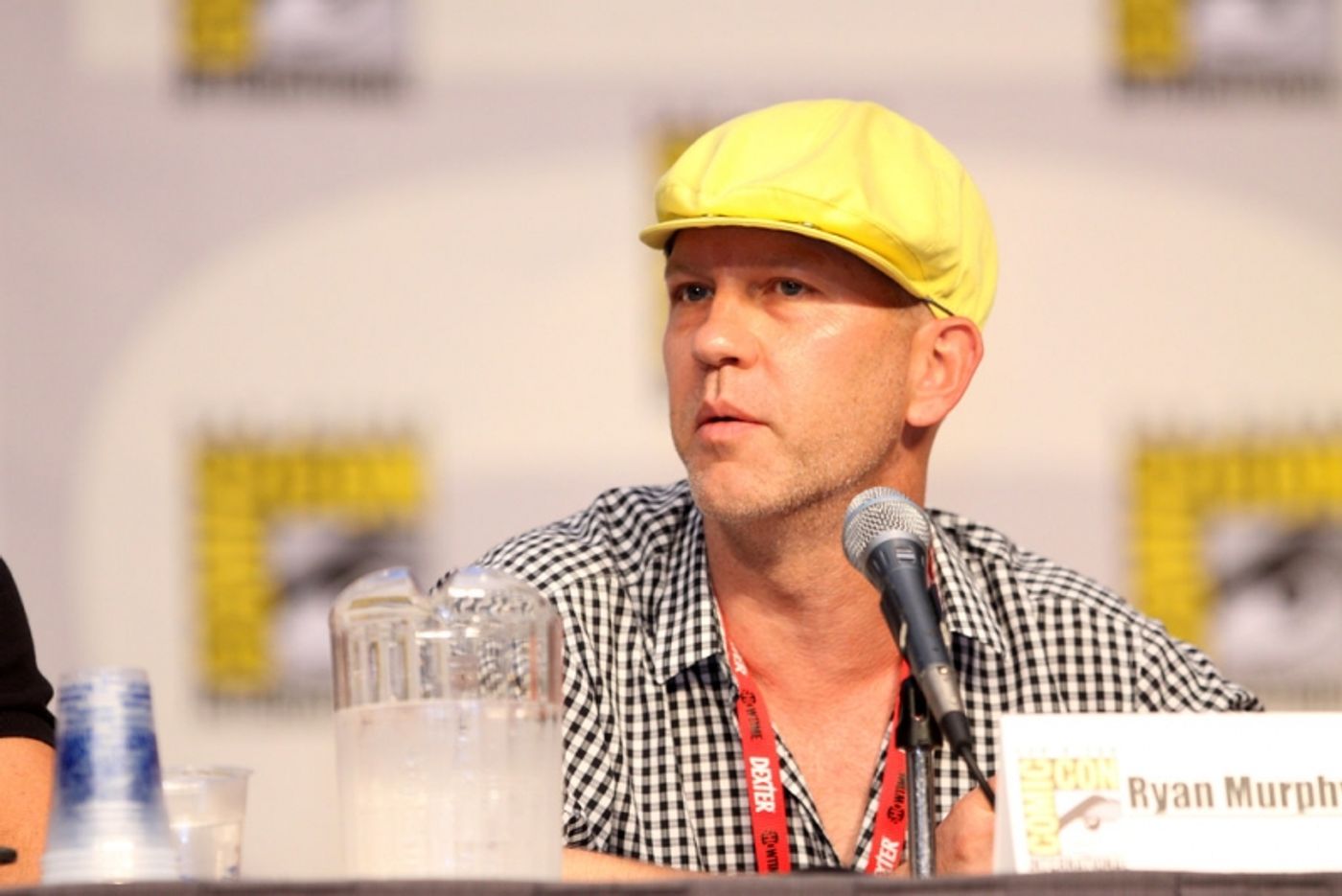Student Blog: That's What We Missed on 'Glee'
*Cue acapella transition music*

Being a theater kid isn't easy.
Performing requires subjecting yourself to a lot of vulnerability, failure and rejection in a very competitive environment; it is difficult at any age, but these struggles are compounded by the emotional turmoil of adolescence and forming early relationships.
This experience was famously satirized and portrayed in the show "Glee," which centered around a group of high school kids who participated in their school's competitive Glee Club.
Like many other young theater fans, I watched "Glee" and identified with some of the characters, admiring them and viewing them as role models. I would stay up late at night, perfecting my rendition "Don't Rain On My Parade" to see if I could hit the last note just right.
I stopped watching "Glee" at around the middle of season four or five, disliking the changes the show made after most of the main characters graduated and went to college. That, combined with Cory Monteith's tragic death, made the show too upsetting to watch.
Since quarantine began, I've seen a lot of older fans revisit the show, as well as some new viewers getting into it for the first time, and my boredom drove me to follow the trend. While I enjoyed the nostalgia of re-watching my favorite moments, it was strange to view the show with adult eyes and realize just how much my perspective and opinions have changed.
"Glee" was marketed, and probably intended, to be a safe space for all who needed it-both on and off the show; but since the show ended, fans have learned a lot about what happened behind the scenes.
Samantha Ware (Jane) came forward with allegations of racism and bullying about Lea Michele (Rachel), and others associated with the show corroborated her story and added their own encounters with Michele. Michele then released an apology, though she neglected to mention Ware by name; Ware then said in an interview that, "All that her apology did was affirm that she hasn't learned anything. Am I calling Lea a racist? No. Does Lea have racist tendencies? I think Lea suffers from a symptom of living in this world in an industry that is tailored to white people."
The co-creator of the show, Ryan Murphy, has also received criticism for his treatment of the actors. Chris Colfer, who plays Kurt, said in an interview during the run of the show that Murphy would sometimes incorporate their stories into the plot.
"I don't think any of us directly try to give input on the character or on the storyline, but they definitely steal things from us," Colfer said. "I remember I was talking to [Murphy] about when I was in high school and I really wanted to sing 'Defying Gravity.' The other students in my drama class and the teachers, when we were putting on this talent show, they wouldn't let me sing it because I was a boy, and it was a girl's song. And then that was made [into] an episode."
Chord Overstreet, who plays Sam, reportedly said at an event that he hadn't had insecurities about the size of his mouth until Murphy included the "Trouty Mouth" song and joke in the script.
Murphy said in an interview that he regrets the dynamic with the cast, saying that one of his biggest shames of his time on "Glee" was his strange relationship with the cast.
"But I also made a mistake: We all got too personal," Murphy said. "We loved it so much that we would all go out to dinner and we'd hang out and we were always together, so there was no delineation between who was the boss and who was the employee."

"American Horror Story," and "Pose."
In another interview, Murphy discussed more of his remorse over those events.
"To this day, I'm devastated by everything that happened with that show," he said. "I wish I could go back and do that differently with a lot of those actors."
Apparently, some think Murphy's behavior hasn't changed much since the show. After Naya Rivera's devastating death last year, Murphy had vowed to help create a college fund for Rivera's son, Josey, but Rivera's father alleges that Murphy hasn't followed through on his promise.
Mr. Rivera tweeted that "Everyone needs to know what Ryan Murphy really did...or didn't do! I'm about to blow up this story...and make sure [he] knows that I know..."
Murphy responded, saying that he, along with the other "Glee" creators are still "committed" to creating the fund and "have been in repeated conversations with the appropriate executors of her estate."
The off-screen quasi-paternal dynamic was epitomized by the fictional "Glee" coach Will, played by Matthew Morrison. Will would constantly reassure his students that they were a family, no matter what; he would then proceed to give the spotlight and most of the solos to Rachel, or Finn if it was a duet with the two of them, ignoring other members of the club with just as much talent. And when it seemed in one episode that the characters (*cough* Will and Rachel *cough*) were finally realizing the untapped talent among them, the next would see Rachel singing yet another solo, with the other characters swaying and harmonizing in the background.
This show was likely meant to illustrate how many people have found long-lasting communities in the arts, with the themes of found family and friendship being spoon-fed to the audience through inspirational quotes and awkward hugs between fighting characters.
But ultimately, "Glee" inadvertently captured how trying to force the narrative of a "family" on people who are incompatible (or even toxic) can result in gaslighting and emotional manipulation.
The writers were able to distract from the main characters' clear biases and flaws by always creating some clear common enemy for the characters, manipulating them into thinking they were part of a family that continuously underappreciated and took advantage of them-or ultimately didn't care about them.
The show also preached about acceptance and self-love while glorifying characters who used microaggressions in the name of humor. All the characters constantly made or tolerated snarky, insensitive jokes about race, sexuality, disability, religion, appearance, weight and more without any real accountability.
Rather than reprimand his students for their behavior, Will would generally ignore it. Amusing as those jokes might be to some people, when they are delivered without any real consequences it can cause young, impressionable viewers to internalize those stereotypes or beliefs as normal-or even acceptable.
Marley (Melissa Benoist) getting punished for refusing to wear a bikini on stage (especially given her struggles with an eating disorder), Will's continuous sexualization of his students and the simplistic and lazy depiction of OCD through Emma (Jayma Mays) are just a few examples that make me cringe upon reflection.
Of course, characters can and should have flaws that make them human, and there are times that the world simply isn't fair. But how can a show genuinely promote acceptance and brand itself as a safe haven for social outcasts, while still incorporating and normalizing many of the same harmful experiences that the characters (and viewers) were trying to heal from in the first place? So much for being a "family."
Found family is an extremely powerful theme when done correctly, but it can be harmful to create a show for young people that teaches them to tolerate emotional manipulation in order to belong. Even "misfits" can be cruel.
"Glee" wanted so badly to be a show in which vulnerable groups can find their voice and confidence and see themselves represented; while it was successful to some extent, it fails its viewers by subtle "funny" insults and presenting real problems in a, literally, performative way.
Ironically, "Glee" was still able to create a supportive community: of fans who make fun of it. Outsiders can trash the show all they want, but no one is better at roasting it than a true Gleek. Nothing is more cathartic for someone with Glee-TSD, as some have dubbed it, than to see fans, and even a couple of actors, talk about their love/hate relationship with the show.
There are many laudable aspects of "Glee." For example, fans of Brittany (Heather Morris) and Santana (Rivera) praise the show for showing a loving, supportive queer relationship. Moreover, there are some truly great covers of songs on the show, and I would be remiss if I didn't mention performances such as the iconic "Smooth Criminal" duet between Santana and Sebastian (Grant Gustin), and Blaine (Darren Criss) singing "Cough Syrup," and much more.
And we can celebrate the actors who made the show great, like Rivera and Monteith, as well as recognizing those who were severely underrated, like Amber Riley (Mercedes), Dianna Agron (Quinn), Jenna Ushkowitz (Tina), Alex Newell (Unique) and Kevin McHale (Artie).
Some would argue that it's just a television show, one that satirizes high school theater and choir groups and is not meant to be taken seriously. But I remember growing up with the show and seeing it advertised at the time, and it was clearly marketed to adolescents; moreover, hearing the actors' experiences on the show indicates that this kind of emotional manipulation can affect people of any age.
I'm not trying to "cancel" this show. I'm not saying people should stop watching it, or that Murphy is the devil, or trying to suggest that Will Schuster is a war criminal. My point is that we should hold the media we consume to a higher standard, and producers should hire more diverse writers who can craft beautiful, authentic stories worthy of the audience.
Yes, other adolescent shows are toxic, and they have probably had negative influences on young people. "13 Reasons Why," "Gossip Girl," and "Riverdale" are just a few examples that come to mind. The difference, to me, is that these shows weren't trying to be something other than what they are. They were clearly just meant to be dramatic and entertaining. "Glee" was different because it was presented to be a safe place-and it wasn't.
My hope is that other shows will learn from this one's mistakes. I think the emergence of other musical shows for adolescents will help lead the charge to have representation with more genuine compassion and nuance, rather than having the message be undermined by "snarky" characters.
While we wait for that special show to come along, I'll be laughing, singing, and making fun of the show along with my fellow Gleeks-and hopefully, the creative team will take it all in good fun. After all, no one is better at teasing you than your family.

Videos


